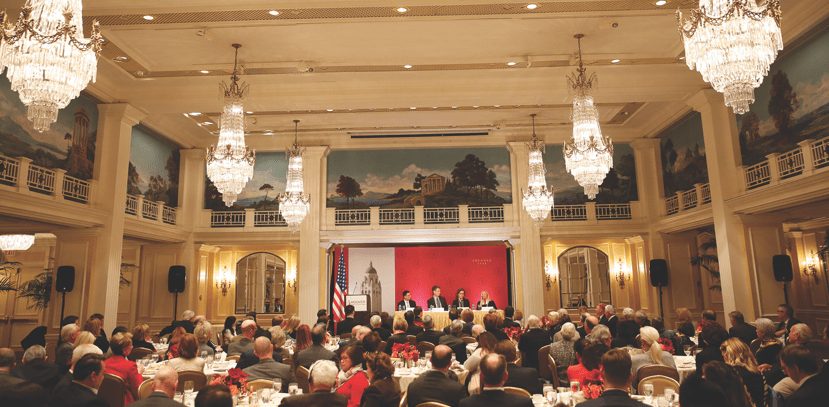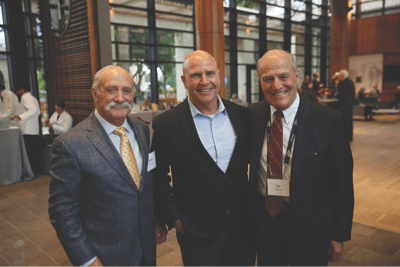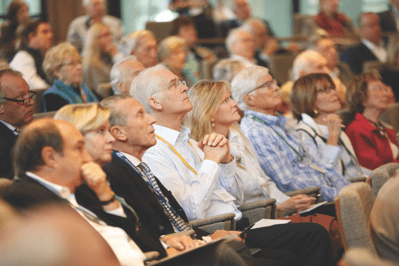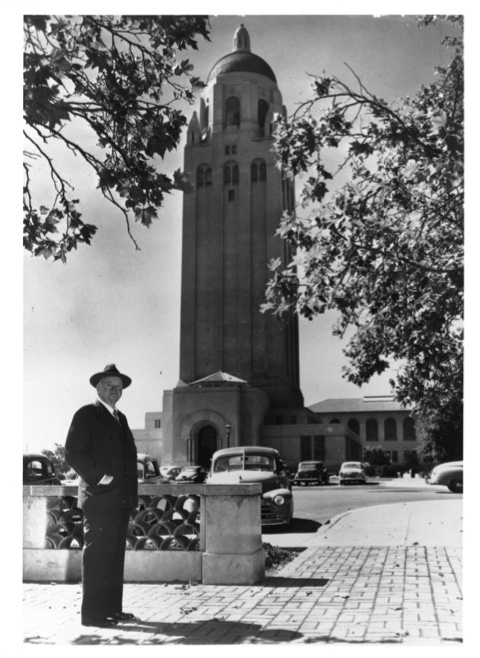


Hoover Institution
2019 Annual Report
“This Institution supports the Constitution of the United States, its Bill of Rights and its method of representative government. Both our social and economic systems are based on private enterprise from which springs initiative and ingenuity. . . . Ours is a system where the Federal Government should undertake no governmental, social or economic action, except where local government, or the people, cannot undertake it for themselves. . . . The overall mission of this Institution is, from its records, to recall the voice of experience against the making of war, and by the study of these records and their publication, to recall man’s endeavors to make and preserve peace, and to sustain for America the safeguards of the American way of life. This Institution is not, and must not be, a mere library. But with these purposes as its goal, the Institution itself must constantly and dynamically point the road to peace, to personal freedom, and to the safeguards of the American system.”

Letter from the Director & the Chairman
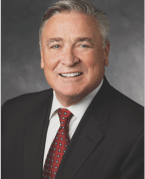
Tad and Dianne Taube Director
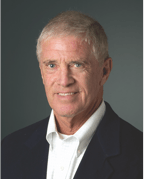
Chairman, Board of Overseers
In 1919, Herbert Hoover founded this Institution to collect and preserve materials that would not only explain the causes of war but, just as important, help navigate the way to peace. We have spent the past year reflecting upon the uncommon vision of our founder and celebrating the century-long story of impact written by our world-renowned scholars and the generosity of those who have stood with us.
Hoover@100: Ideas Defining A Century, which opened in Hoover Tower in September, showcases documents and artifacts depicting peace, freedom, and education. We have also over the past year been hosting a centennial lecture series: A Century of Ideas for a Free Society features panels of Hoover fellows examining critical issues facing America and the world, with themes reflecting the values of the Hoover Institution. Hundreds of guests are filling the David and Joan Traitel Building for each session—often overflowing the building’s 440-seat Hauck Auditorium. Defining Moments, a coffee-table book published this past July, charts the Institution’s origins and growth over the course of a century of global upheaval.
We continue to make significant investments for the future, bringing back General Jim Mattis as a distinguished fellow and adding Kevin Hassett, former chairman of the Council of Economic Advisers, as a distinguished visiting fellow. Planning for the next phase of our campus facilities—the construction of the George P. Shultz Building—is substantially complete and fully funded.
With the achievement of these core objectives by current leadership, Hoover is well positioned for a transition to a new director. A wide-ranging search-and-selection process is well underway, with a new leader scheduled to take charge at Hoover on September 1, 2020.
The Hoover Institution is poised to embark on its second century having ever-greater impact in guiding our nation’s policy makers, informing the marketplace of ideas, and illuminating the road to peace and prosperity, both in America and around the world.
Sincerely,


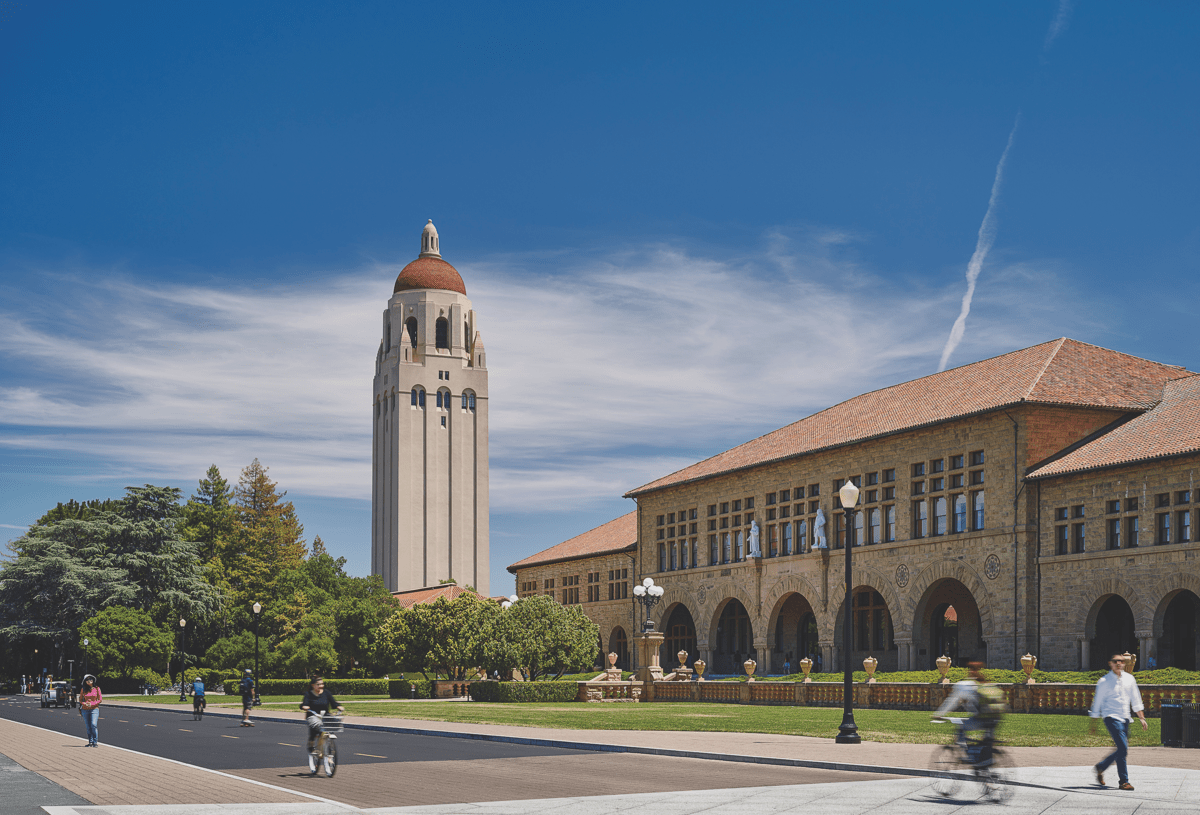
Research & Scholarship
Research & Scholarship
A New Century Of Hoover Scholars
Senior fellow and research director Joshua Rauh worked with overseers and leadership to initiate a long-term investment in Hoover’s most vital human resource: its fellows. Under the auspices of a new Human Capital Plan, major steps were taken in establishing a pipeline of outstanding scholars into the Hoover fellowship, each with the serious academic and policy credentials needed to maintain Hoover’s high level of impact in the marketplace of ideas. The new category known as Hoover Fellows offers highly accomplished young scholars a chance to engage full time in research and policy work at Hoover. In its senior ranks, the Hoover Institution was honored to welcome back General Jim Mattis and to announce the appointment of Kevin Hassett.
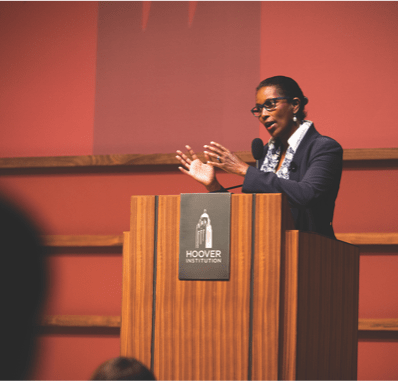
HOOVER RESEARCH PROJECTS
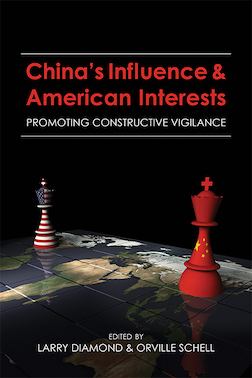
China’s Influence and American Interests
A landmark study, China’s Influence and American Interests: Promoting Constructive Vigilance (Hoover Institution Press, 2019), argues that China’s state-led efforts to advance its interests and image abroad have expanded beyond “soft power” to include clandestine and coercive information-control tactics. The report emerged from a major research initiative led by Hoover Institution Senior Fellow Larry Diamond and Orville Schell, director of the Center on US-China Relations at the Asia Society, and draws on contributions by more than thirty experts on China, Asia, and world politics. The report proposes broad policy responses that call for protecting the integrity of American institutions—and the rights of Chinese Americans—against attacks by the Chinese government.
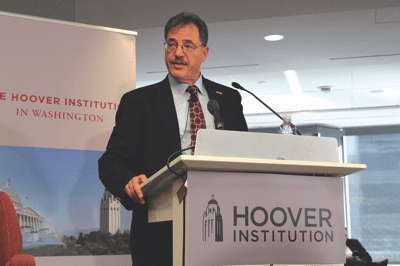
Governance in an Emerging New World
Hoover fellows have convened a global network of academic, government, and industry leaders to study a matrix of issues affecting world governance, including developments in Russia, China, Latin America, Africa, Europe, and the Middle East; the implications of information technology for democratic institutions, national security, and the economy; and questions on global health and the environment.
Learn more about the hoover governance projectRevisiting the 2008 Financial Crisis
In the decade since the 2008 financial crisis, a standard history has emerged that begins in the moments after the crisis, skipping past its causes to focus on regulators and monetary authorities as they rescue the global financial system from collapse. Hoover economists warn that this conventional narrative obscures lessons learned and puts us at risk. In fall 2018, numerous Hoover fellows and other experts convened to integrate ten years of economic research and observations into a robust picture of the crisis, recession, and recovery.
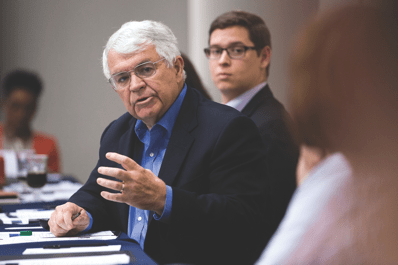
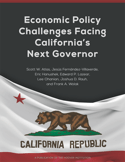
Economic Policy Challenges Facing California’s Next Governor
In the days before California’s 2018 gubernatorial election, Hoover scholars published the white paper “Economic Policy Challenges Facing California’s Next Governor,” outlining commonsense policy fixes that could open the door to hundreds of billions of dollars in potential cost savings for the state and substantial increases in economic growth. Featuring contributions by David and Joan Traitel Senior Fellow Scott W. Atlas, Senior Fellow Lee Ohanian, and Paul and Jean Hanna Senior Fellow in Education Eric Hanushek, the report included detailed policy recommendations dealing with education, land use, health care, water, public pensions, and energy.
Read the report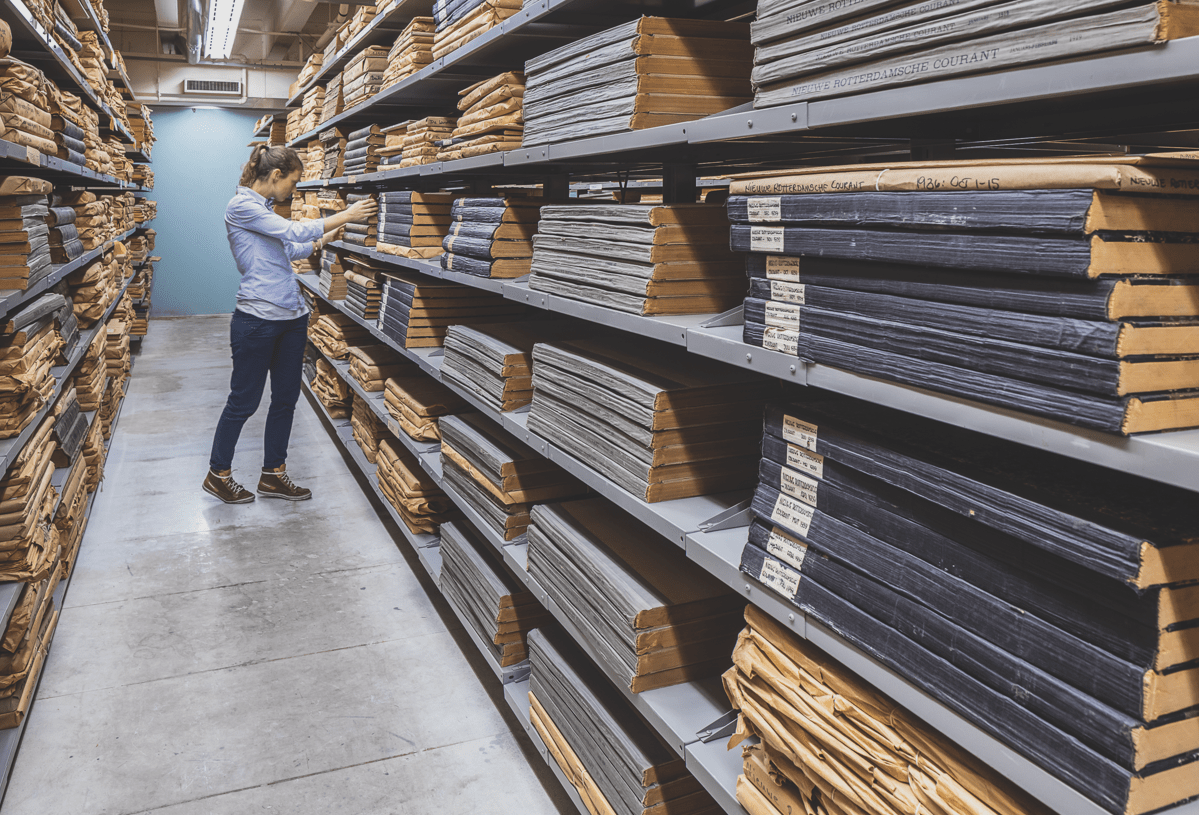
library & archives
library & archives
SUSTAINING A VITAL MISSION
In 2019, two significant gift commitments by Hoover Institution overseers significantly expanded the horizons of the Library & Archives as it entered its second century.
Digital First/Virtual Library Program
With virtualization and digital content becoming essential, researchers using the Hoover Institution’s Library & Archives expect to interact more with collections through technologically enhanced approaches. Archival material set to be digitized will progress through a series of rooms custom built for description, conservation, digitization, and holding before being relocated to an off-site facility for safekeeping.
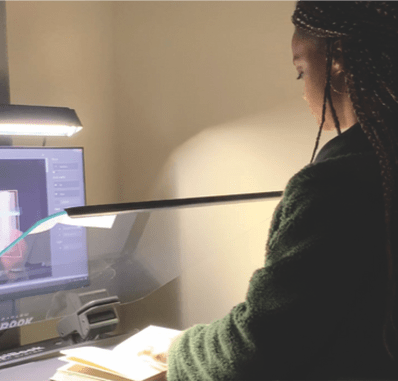

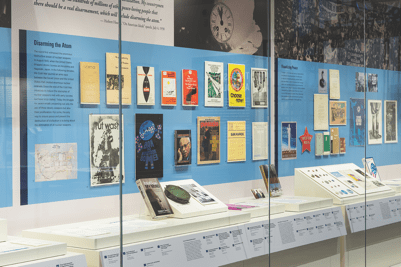
Library & Archives Infrastructure
To convert valuable on-campus space from archival storage to Hoover research facilities and to modernize preservation capabilities, L&A is constructing an addition to the Stanford Auxiliary Library 3 storage facility in Livermore, California. Select Hoover collections will be stored in their own climate-controlled bay while remaining available to researchers via daily delivery. This year also saw a major renovation of the exhibit spaces in Hoover Tower, the historic center of the Institution, which receives well over one hundred thousand annual visitors from around the world.
SIGNIFICANT ACQUISITIONS
This year the Library & Archives brought a number of significant collections to Hoover, from the papers of a Nobel Prize–winning economist to the diaries of a former confidant of Mao Zedong.
Friedrich Hayek Collection
“This spring, thanks to a generous donor, we were able to acquire an outstanding collection of material created by economist and Nobel Prize recipient Friedrich Hayek, a towering intellectual figure of the second half of the twentieth century. His writings as an economist and political philosopher, and especially his explanation of the relationship between market forces and personal freedom, have had a profound impact in shaping the modern world.”
––Eric Wakin, Robert H. Malott Director of the Hoover Library & Archives

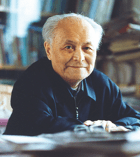
Li Rui Papers
“This year, Hoover opened the papers of Li Rui, a senior Chinese Communist Party official who became one of its most trenchant critics. In the 1950s, Li served as Mao Zedong’s personal aide, but he was later imprisoned for almost a decade. The collection, including his diaries from 1935 to 2018, provides a unique opportunity to view Communist China’s leadership, power politics, and decision making. The papers arrived at Hoover with the help of Li Nanyang, working with her father, Li Rui.”
—Hsiao-ting Lin, Curator for Modern China Collections
Andrei Siniavskii Papers
“The Andrei Siniavskii papers provide invaluable research materials relating to the history, culture, literature, and dissident movement of the Soviet Union in the late twentieth century. Andrei Siniavskii was a Russian writer, dissident, political prisoner, emigrant, professor, and publisher. His collection includes trial documents and a vast amount of correspondence between Siniavskii and his wife, Maria Rozanova, and well-known figures such as Boris Pasternak, Saul Bellow, and Svetlana Allilueva (Stalin’s daughter).”
—Lora Soroka, Assistant Archivist for Russian Collections
Wojciech Jaruzelski Papers
“The Hoover Archives received the papers of Wojciech Jaruzelski at the end of September 2018. General Jaruzelski was one of the best-known individuals of postwar Poland, initially as the first secretary of the Polish United Workers’ Party; then as the prime minister who used martial law to suppress Solidarity; and finally, becoming Poland’s president as a result of the famous Round Table Talks in 1989. The collection provides a unique opportunity for researchers and historians to dive into the world of one of the most recognizable and controversial politicians of not only Poland but the entire Soviet bloc.”
—Gerardina Malgorzata Szudelski, Archival Specialist for European Collections
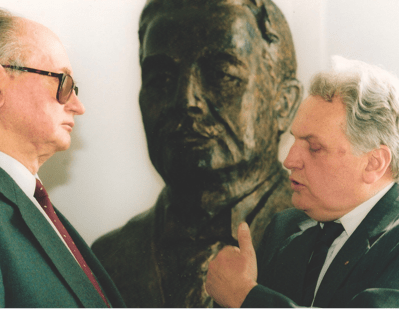
Beadle Diaries
“This spring Hoover acquired the lively and illuminating diaries of Gerald ‘Jack’ Beadle, a Britisher living in Oregon in the early twentieth century, who enlisted in the First World War and became a sniper at Gallipoli. The detailed diaries, which include photographs of Beadle during his years of service, give readers an eyewitness view to one of the most harrowing military campaigns. Diaries of soldiers who fought in Gallipoli are extremely rare, and this one is tremendously compelling—one that certainly will be a fantastic resource for researchers.”
––Jean Cannon, Curator for North American Collections
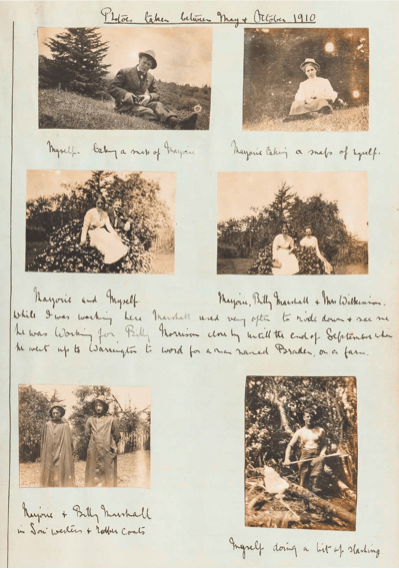
Celebrating One Hundred Years
HOOVER@100:IDEAS DEFINING A CENTURY
Fall 2019–Summer 2020
In celebration of its centennial, the Hoover Institution opened the exhibition Hoover@100: Ideas Defining A Century on October 10, 2019. The first exhibition held in the Hoover Tower’s renovated exhibition spaces, Hoover@100 is a showcase of documents and artifacts centered around the ideas of peace, freedom, and education—ideas that are embodied in the lives of Herbert Hoover and his wife, Lou Henry, and that drove the Institution’s collecting and the work of its eminent fellows in its first century.
Learn More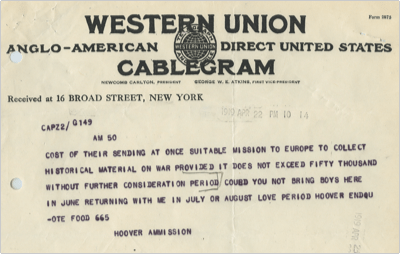
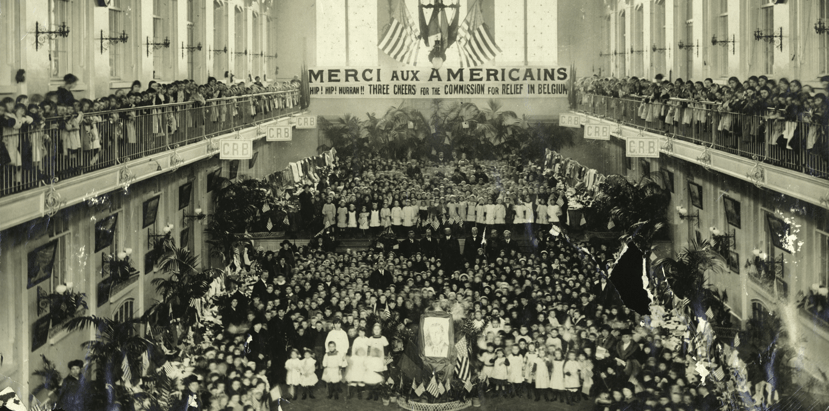
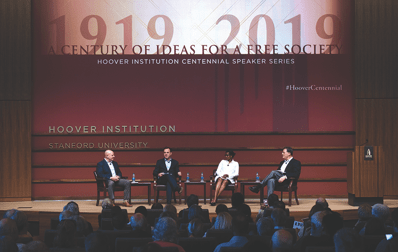
A CENTURY OF IDEAS FOR A FREE SOCIETY
Throughout 2019 and into 2020, the centennial lecture series invites Hoover fellows to participate in eleven lectures examining critical issues facing America and the world, designed around themes reflecting the values of the Hoover Institution. To date, hundreds of guests have packed the David and Joan Traitel Building for each session, and thousands more have streamed the talks online—with each talk receiving on average nearly ten thousand views. The complete video archive of the series is available at Hoover.org.
WATCH OUR SPEAKER SERIES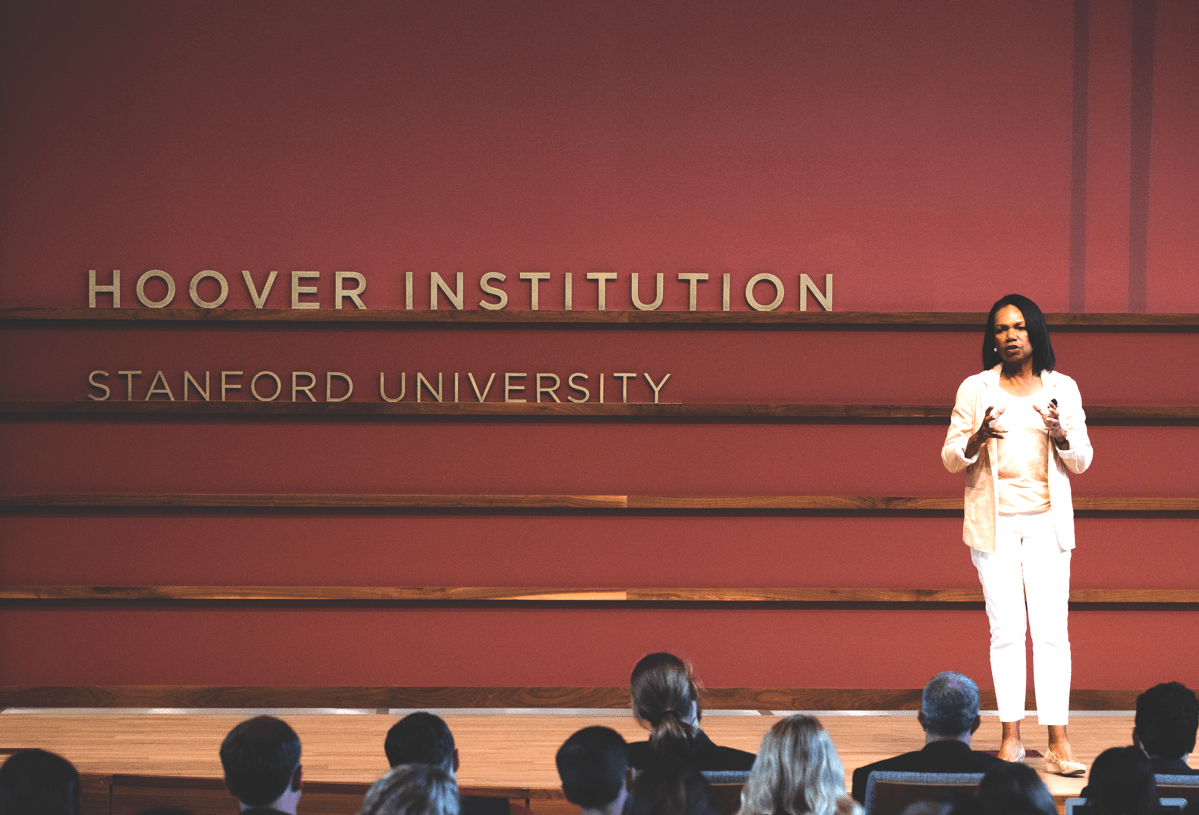
Communications & Education
Communications & Education
MEDIA COMMUNICATIONS
When Americans are confronted with questions of public policy, they often turn to news media—on television and radio, in print, and increasingly online—as their principal forums for information and commentary. Long-standing relationships with America’s leading journalists, along with Hoover’s reputation as one of the nation’s most reliable sources for incisive, real-time policy analysis, have established the Institution as a leader in this market for ideas.
2019 in the Media
Hoover’s media programs support a major presence in the nation’s most influential broadcast, print, and online outlets. Hoover fellows made nearly one hundred appearances, for example, on the nation’s cable news leader, Fox News, and gave an additional four hundred television interviews on leading cable and broadcast networks MSNBC, ABC, CBS, CNN, and CNBC. This year’s nearly seven hundred op-eds by Hoover fellows included fifty in the Wall Street Journal, with the rest appearing in such Beltway fixtures as the Washington Post, The Hill, and Politico, as well as outlets with global reach and influence, including the New York Times, the Boston Globe, the Financial Times, and Forbes.
Hoover Media Programs
Hoover’s considerable news presence is based on an extensive network of relationships in the media, cultivated through programs such as the William and Barbara Edwards Media Fellows Program, which embeds established and up-and-coming journalists among Hoover fellows, and Hoover’s Media Roundtables, which bring as many as forty reporters at a time to our headquarters for one- to two-day briefings and panel discussions with fellows. This year’s three Media Roundtables included sessions briefing journalists on political polarization, polling and election analysis, and the 2020 presidential race; on the cyber threat landscape; and on national security, focusing on China, Russia, and emerging technologies affecting the future of warfare.
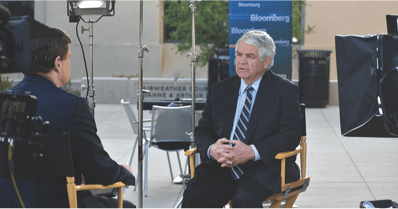

THE HOOVER INSTITUTION IN WASHINGTON
Amplifying the voices of Hoover scholars to reach those in Congress, the White House, and the national policy community, the Hoover Institution in Washington is a cornerstone of the Institution’s “top- down” efforts to advance freedom and prosperity. Headquartered blocks from the White House, the Hoover Institution in Washington provides a forum for events and meetings with lawmakers, facilitates testimony and briefings on Capitol Hill, and helps educate influential congressional and executive branch staff members about Hoover principles and policy solutions.
Research Conferences
The Hoover Institution in Washington also serves as a research outpost for Hoover scholars, allowing them to convene influential members of the Washington policy community and present their work to lawmakers. Events included “Tools of Regulatory Reform: Maintaining Executive and Constitutional Order,” a conference of Hoover’s Regulation and the Rule of Law research initiative, which gathered leading legal scholars and an audience of nearly seventy representatives from the White House, Capitol Hill, think tanks, and private industry, to explore the flood of orders from judges enjoining Trump administration policy and techniques for improving regulatory reform. Another recent Washington conference centered on a new Education Next report that drew on nearly fifty years of student performance to conclude that $1 trillion devoted to federal programs to close the academic achievement gap between children in low- and high-income households has yielded no change.
Events in Washington, DC
The Hoover Institution in Washington’s twenty-two public events this year included a forum on the alleged state-sponsored killing of Saudi journalist and Washington Post contributor Jamal Khashoggi, featuring panel discussions on the case, its implications for press freedom and human rights, and how US policy makers should respond. In another event, as part of Hoover’s Opening Arguments: Conversations on American Constitutionalism series, Wisconsin representative Mike Gallagher visited Hoover for the discussion “How to Fix Congress—and Why.” The discussion paralleled Gallagher’s widely read Atlantic article arguing that Congress has defanged itself by relinquishing control over spending and defense and that House rules and procedures have left members powerless to resist senior leadership or advance substantive legislation.
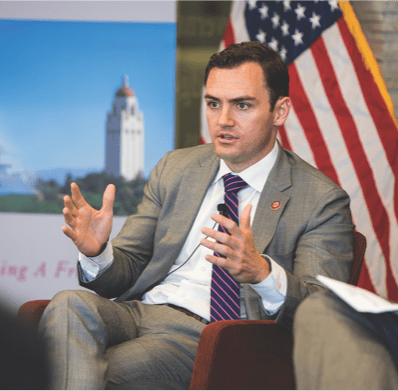
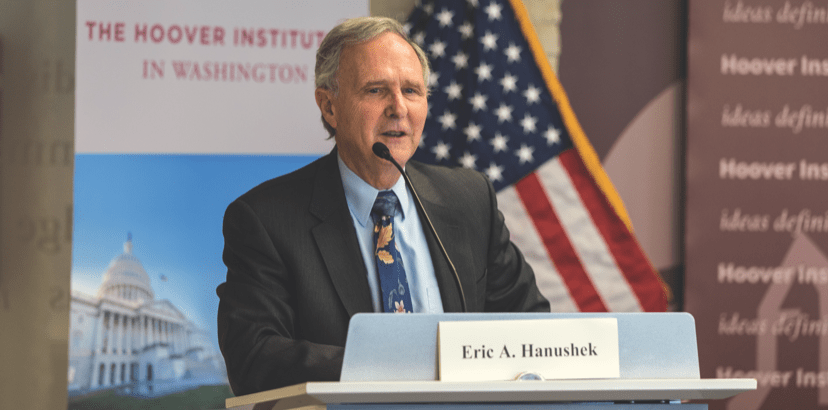
Informing the Policy-Making Community
Each year, Hoover hosts congressional staffers in the Stuart Family Congressional Fellowship Program, an intensive, two-day introduction to Hoover fellows and their research held at Hoover’s California headquarters. This year the Hoover Institution in Washington also launched the new Economic Fellowship Program for exceptional junior Hill and executive branch staffers. The program began with a twice-monthly seminar series on the Hill led by Hoover scholars, followed by an immersive, three-day seminar on the Stanford campus spanning the full range of Hoover research areas. Another program, the Hoover National Security and Technology Congressional Briefing Series, seeks to provide congressional staff with greater understanding of the nexus between national security and technology policy.
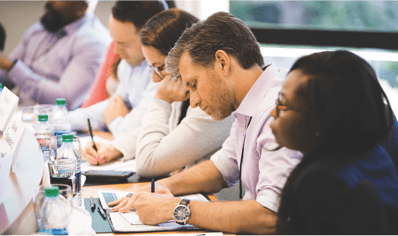
EDUCATING AMERICANS IN PUBLIC POLICY
The Mary Jo and Dick Kovacevich Initiative at the Hoover Institution
A component of the Institution’s Educating Americans in Public Policy (EAPP) Initiative, Hoover’s PolicyEd platform hosts the works of Hoover fellows that have been transformed into accessible, engaging videos and other educational content to spark deeper interest in our research and ideas. Aimed primarily at younger viewers (ages eighteen to forty-four), PolicyEd has gained significant traction among a crucial but difficult-to-reach demographic.
America Off Balance
America is facing a fiscal crisis of epic proportions, one that threatens our country’s ability to provide for the next generation. A first-of-its-kind interactive platform based on research by John Cogan, the Leonard and Shirley Ely Senior Fellow at Hoover, and Boyd and Jill Smith Senior Fellow John Raisian, America Off Balance doesn’t only show users that difficult structural changes are needed to escape fiscal disaster—it lets them discover that irrefutable conclusion for themselves.

 Visit America Off Balance
Visit America Off Balance
Perspectives on Policy
The first PolicyEd series to put Hoover scholars on screen to present original research on a variety of topics, Perspectives on Policy pairs traditional academic lectures with engaging motion graphics and visual metaphors. Each video is accompanied by supplementary educational resources, such as in-depth articles and reports supporting the lessons in the videos, illustrated key points and glossaries of terms, and quizzes allowing users to test their knowledge. With eight videos released to date, the series has been viewed more than 4 million times.
Visit Perspectives on Policy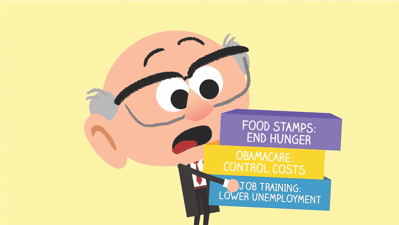
Friedman Fundamentals
Milton Friedman, who made his intellectual home at the Hoover Institution for nearly thirty years, remains unrivaled in his ability to explain complex economic and political concepts in a cogent and concise manner. This year, PolicyEd premiered Friedman Fundamentals, a new video series that pairs select audio recordings of Friedman with animations of the Nobel laureate and Hoover fellow as he makes the case for freedom. The recordings are part of the Hoover Library & Archives’ Collected Works of Milton Friedman, a vast online archive of more than 1,400 digitized items spanning seventy-seven years of Friedman’s work.
Visit Friedman FundamentalsSTUDENT PROGRAMS
A rapidly growing area of public education at the Hoover Institution is student programs that reach young people at Stanford and around the world with ideas and policy solutions that are too often ignored on college campuses. Drawing on classically liberal principles, economic reasoning, data-driven analysis, and other concepts underlying Hoover research, these programs equip students to make informed civic contributions and advance positive change through their careers.
Pizza and Policy
This year, the Hoover Institution launched the Pizza and Policy lecture series, which connects Stanford students interested in public policy with the history-making researchers and government leaders who share the campus as fellows at the Hoover Institution. Each event includes a pizza dinner and a short talk by a Hoover fellow, followed by an open question-and-answer session with students leading the discussion.
Summer Policy Boot Camp
“My week at the Hoover Institution Summer Policy Boot Camp was astonishing. While each lecture was no more than an hour, they often went further than any college course has. Some of the speakers have conducted research that has been foundational for my own, so the opportunity to question them was a dream come true. Besides attending presentations by these intellectual all-stars, I got to spend my time with engineers, Marines, industry specialists, and policy writers. Lunch was over the singularity of artificial intelligence. Dinner came with a side of strategic approaches for the Korean peninsula. Just a walk in the dorm led to discussions on policy with people
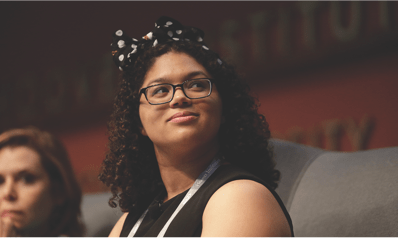
who live and breathe it. Every person had a specialty they were intensely passionate about and could speak for hours on. It was easily one of the most influential weeks of my life.”
—Kaila Webb, Summer Policy Boot Camp Participant
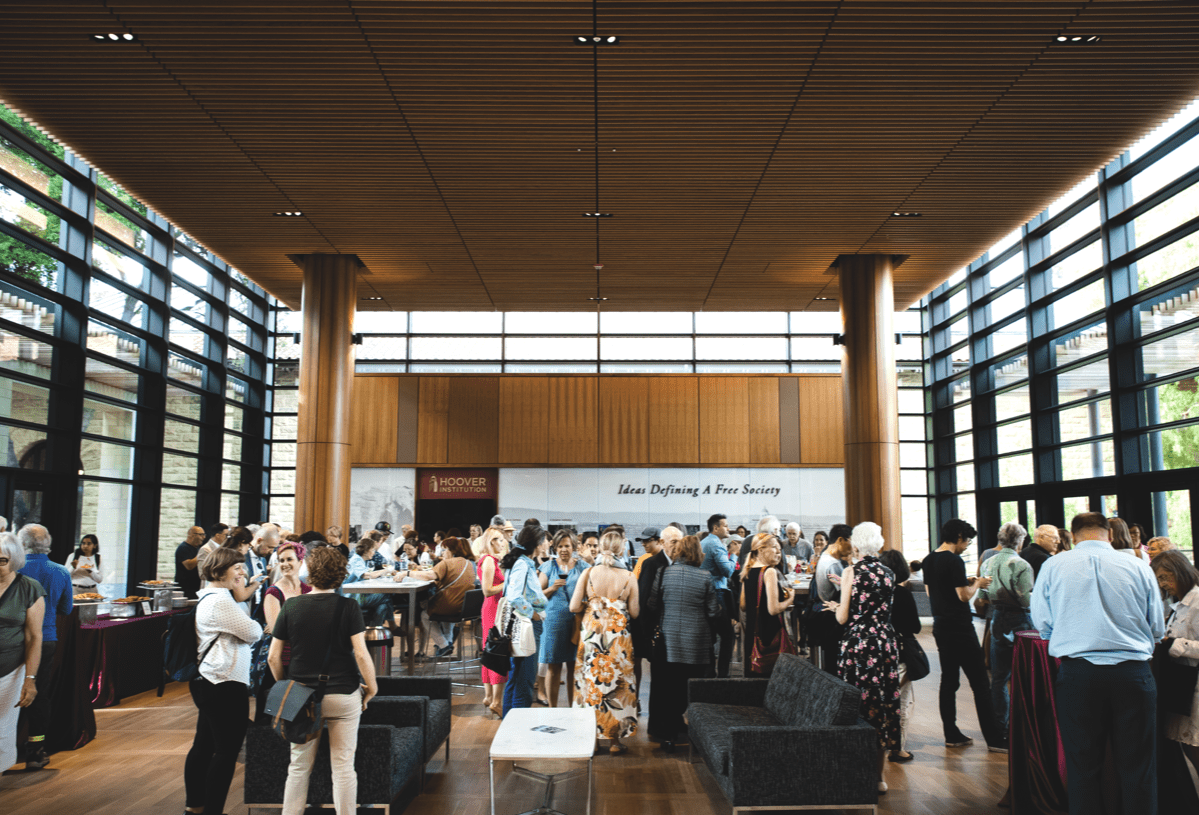
People & Support
People & Support
The Extraordinary Individuals behind Our Work
